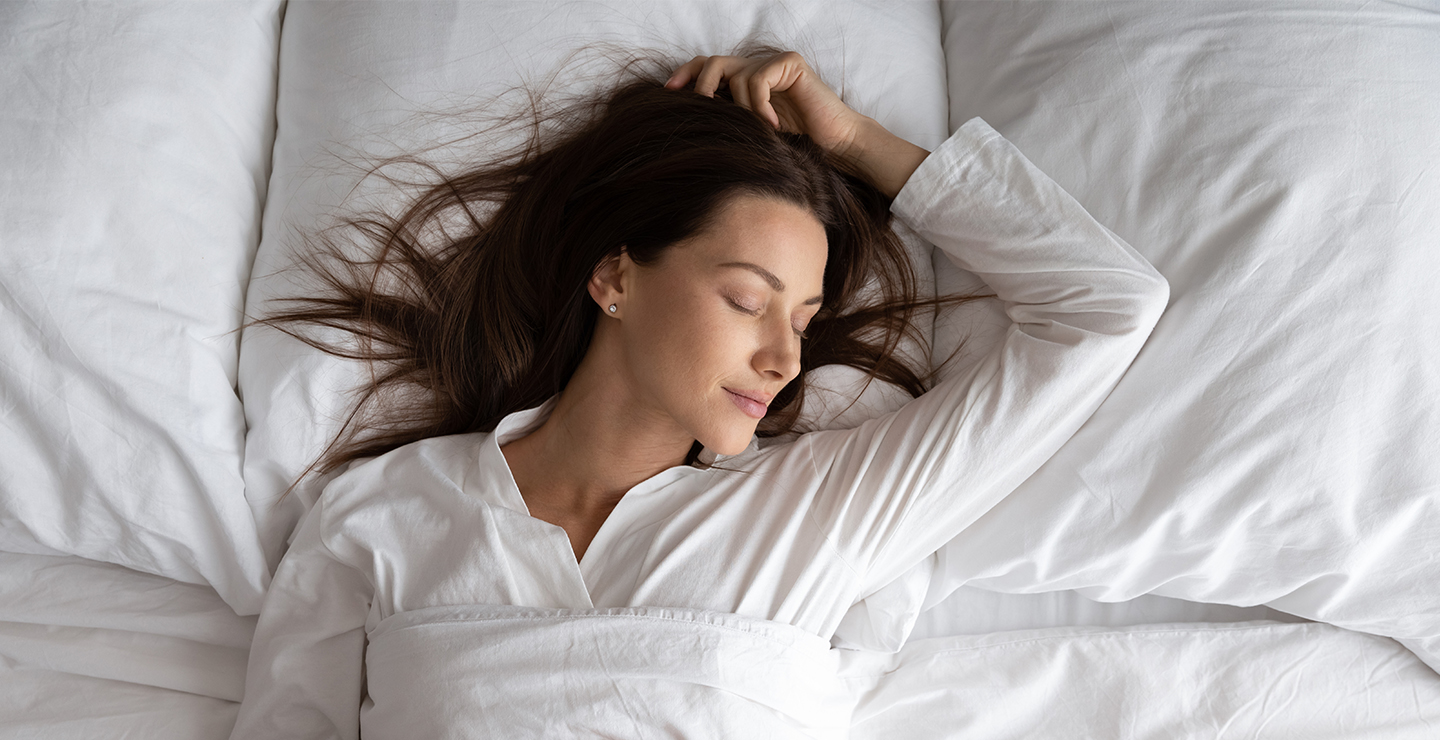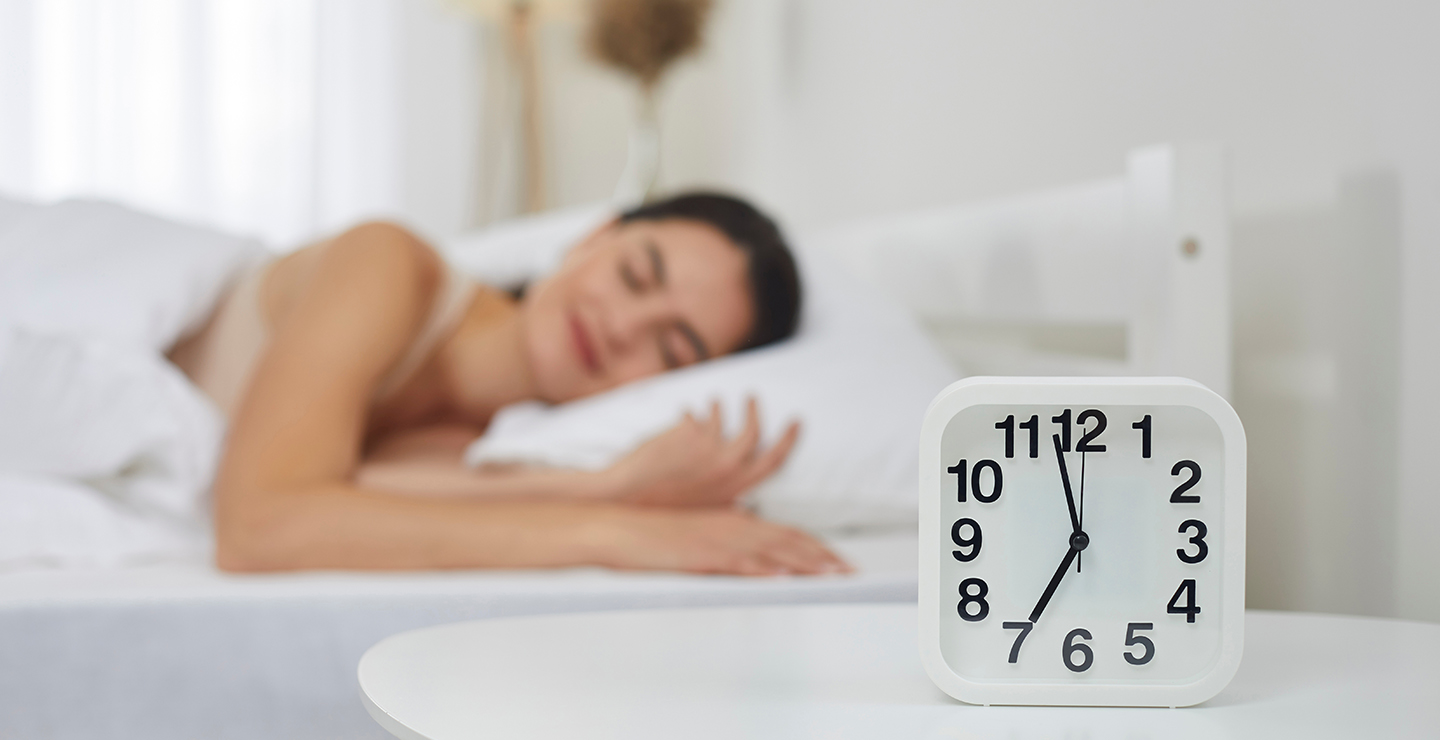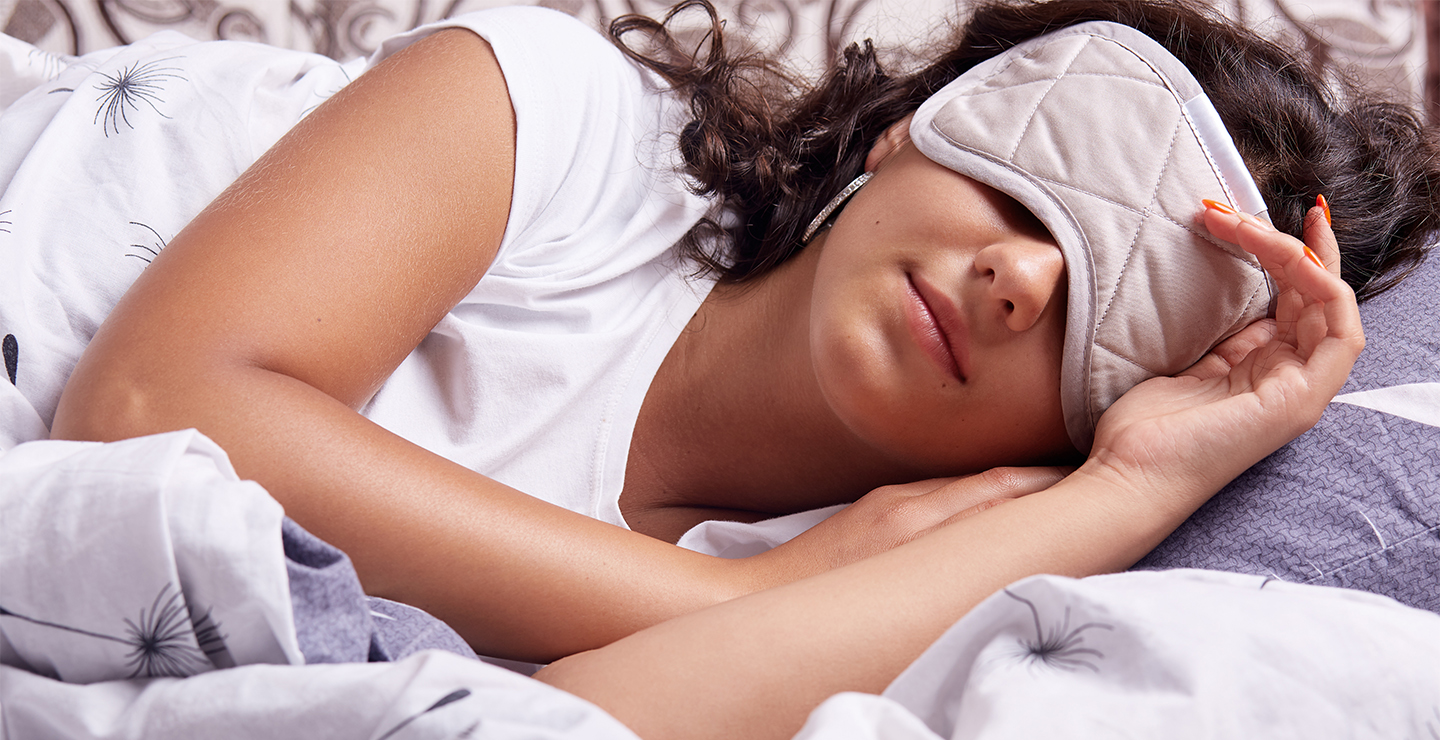10 tips to avoid jet lag and catch some zzz's on a long flight.
Some trips only happen once in a lifetime. When you hop on a plane and travel across the world, you don’t look forward to the jet lag that can stop you from enjoying your trip to the fullest. Or if you’re headed to a critical business meeting as soon as you get off the plane, the last thing you want is to make a bad impression on a company executive or a client.
Struggles & Remedies
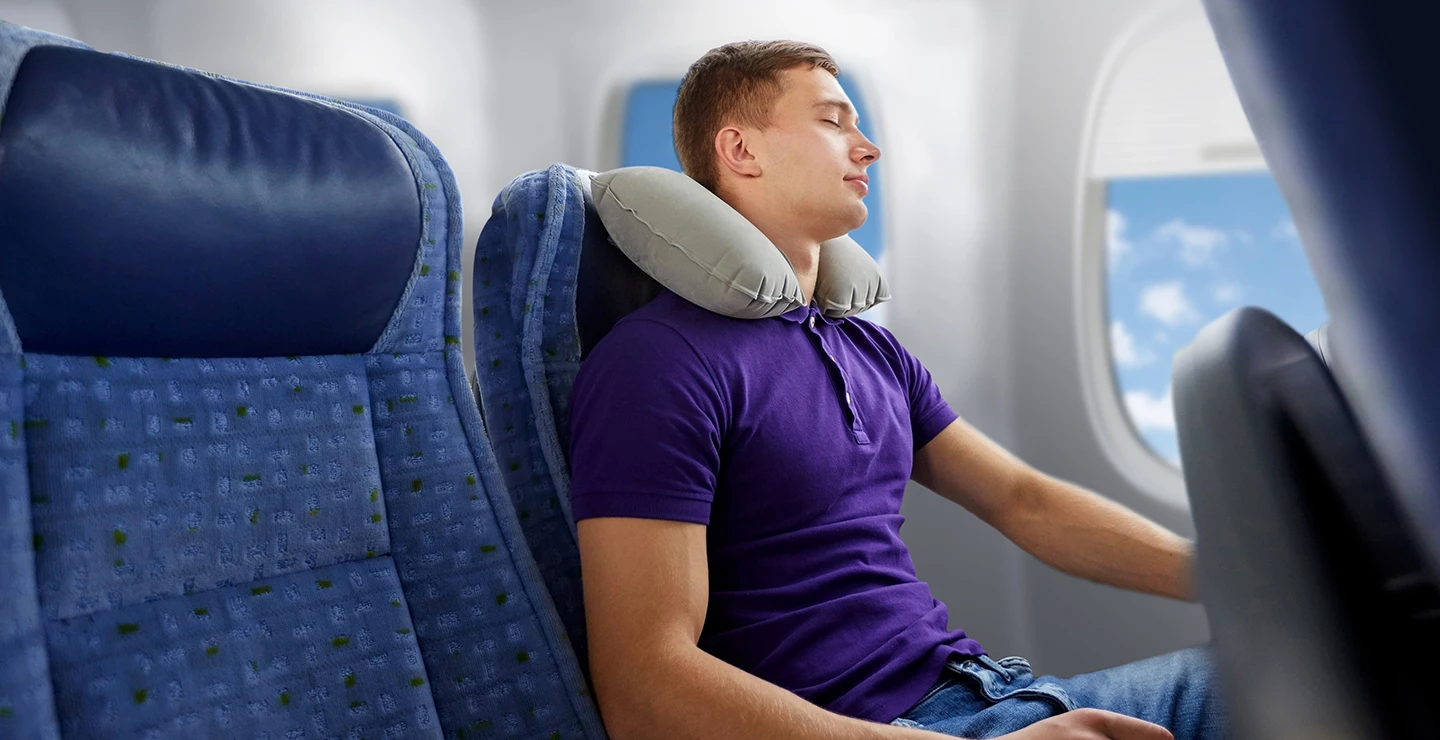
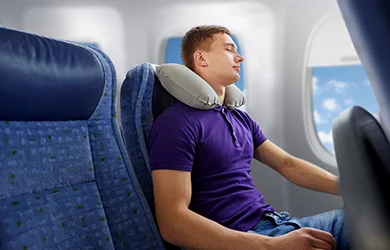
Some trips only happen once in a lifetime. When you hop on a plane and travel across the world, you don’t look forward to the jet lag that can stop you from enjoying your trip to the fullest. Or if you’re headed to a critical business meeting as soon as you get off the plane, the last thing you want is to make a bad impression on a company executive or a client. The good news is you can avoid the jet lag altogether if you prepare for it.
Keep reading to learn about jet lag, how to avoid it, and how melatonin might be able to help.
What Causes Jet Lag?
Jet lag is a physical and mental response to traveling a great distance, particularly across time zones. Headaches, fatigue, irritability, digestive issues, and sleeplessness are all symptoms of jet lag. Whether you’re traveling for work and need to make a great impression the next day or you’re traveling for pleasure and want to get as many hours out of the trip as you can, jet lag can be an unpleasant and disruptive reality for travelers.
One of the best remedies for jet lag is sleep. Chances are, you don’t want to sleep the day away when you travel across the world. Read on to learn tips for avoiding jet lag and how to get some shut eye in the cramped quarters of a plane.
10 Tips to Avoid Jet Lag Before It Happens
1. Prepare your body.
Get a good night’s sleep , exercise in the morning, and get to the airport. Starting the trip off on a good note will help your body adjust to the cramped quarters and sudden change in altitude.
2. Adjust your schedule.
Adjust your internal clock by shifting your schedule to your destination’s time zone before you leave. Consistently eating and sleeping at the same time each day is a great way for your body to adjust to your new time zone. If you’re heading somewhere that’s in a time zone an hour ahead of your own, wake up, go to bed, and eat meals an hour earlier for a few days before your flight. (Hint: Melatonin may help.) If you’re traveling to a time zone behind your own, try to stay up, wake up, and eat later in the days leading up to your trip.
3. Avoid the middle seat.
If your airline lets you pick your seat at booking, select one on the aisle. If you’re able to, upgrade your seat to give yourself more comfort and room. But if all else fails and you get stuck in a middle seat in coach, don’t worry. There are still things you can do to make your trip more comfortable and lessen the effects of jet lag. Wear lose clothing, bring a sleep mask and ear plugs, and use a pillow that will help support your head if you want to fall asleep fast.
4. Take melatonin.
Melatonin is the hormone your body naturally produces when it’s getting ready to go to sleep. Taking a melatonin supplement when you first get on a flight— if traveling overnight—is a great way to ease yourself to sleep, so you wake up refreshed and rested when you land. However, this should only be done for flights longer than 6 hours, as this is how long it takes melatonin to leave your system. You don’t want your body to be trying to ease you into sleep as you’re navigating a busy foreign airport.
ZzzQuil Pure Zzzs Melatonin works naturally with your body to help you fall asleep.* Plus, it comes in gummy and tablet form, so you won’t have an issue getting it past security at the airport.
5. Drink lots of water.
One of the best things you can do to combat jet lag is to stay hydrated. Bring a water bottle with you onboard and make sure you’re sipping from it frequently. Buy a bottle of water at a terminal shop or bring an empty reusable bottle to fill up after getting though security. Often, the air inside of a plane has very little moisture. That means you should be drinking more water than you usually do. The Aerospace Medical Association recommends that you drink an 8-ounce glass of water every hour that you’re in the air. When you’re dehydrated, you’re prone to headaches, fatigue and dizziness.
6. Stretch regularly.
When the captain turns off the seat belt sign, stand up and walk around the cabin to get your blood flowing. Or if you don’t want to bother other passengers (or don’t have an aisle seat), you can do some surreptitious exercises, like crunches and toe lifts. Blood can pool in your extremities during long flights, so anything that increases blood flow will help your body not feel beaten-up and sore when you finally get off the plane.
7. Wear appropriate footwear.
Avoid tight-fitting shoes. Feet commonly swell on planes due to the cabin pressure and lack of ability to move around. You don’t want to wear any unforgiving footwear that will make walking around the airport after your flight more difficult. For overnight flights, slipping your shoes off and putting on a pair of fuzzy socks on might make it easier to fall asleep.
“Airplane food is often high in sugar or salt, two things not known for improving jet lag. Skip the snack cart…”
8. Bring snacks.
Airplane food is often high in sugar or salt, two things not known for improving jet lag. Skip the snack cart and bring healthy, filling snacks to munch on throughout the flight to keep your blood sugar up. As a bonus, you won’t be ravenous when you land, which will let you more easily adjust to your new time zone’s eating schedule.
9. Get some sleep.
If you land late at night, go straight to your hotel for a good night of sleep. Try to wake when the rest of the city wakes to help your body adjust to your new time zone. If this leaves you sleep deprived, try to work in a couple of 30-minute naps throughout the day and allow yourself eight hours of sleep the following night. Note: If the change in location is making it difficult for you to fall asleep, you may want to try a non-habit-forming sleep aid like ZzzQuil.
10. Soak up some sunshine.
If you land when it’s daylight out, take a walk in the sun. Sunlight can help reset your body’s circadian rhythm. If you’re feeling too tired for that, treat yourself to a 30-minute nap, and then get back out there.
Can I take melatonin for jet lag?
Melatonin is a hormone that your body produces naturally. Melatonin supplements help you fall asleep by increasing the amount of melatonin in your body, which helps recalibrate your body’s circadian rhythm, making you sleepy when you want to be sleepy.
ZzzQuil PURE Zzzs is a great drug-free, non-habit-forming way to get some shut-eye on those long flights. Once you’re comfortably in your seat, take a serving and wait for the melatonin to ease you to sleep. ZzzQuil PURE Zzzs can also be taken the night you land and each night while you’re away if you have trouble sleeping. It’s also normal to have difficulty sleeping after returning home as you re-adjust to your normal environment. Any night you think you might have trouble falling or staying asleep, take a serving half an hour before bed.
These tips should help avoid the frustrating effects of jet lag, so that when your plane lands, you can ace your presentation or start checking sites off your must-see list. The most experienced travelers know, sometimes your body needs help keeping up. The sleep experts at ZzzQuil created sleep aids for just these occasions.
ZzzQuil PURE Zzzs is a great drug-free, non-habit-forming way to get some shut-eye on those long flights. Once you’re comfortably in your seat, take a serving and wait for the melatonin to ease you to sleep. ZzzQuil PURE Zzzs can also be taken the night you land and each night while you’re away if you have trouble sleeping. It’s also normal to have difficulty sleeping after returning home as you re-adjust to your normal environment. Any night you think you might have trouble falling or staying asleep, take a serving half an hour before bed.
These tips should help avoid the frustrating effects of jet lag, so that when your plane lands, you can ace your presentation or start checking sites off your must-see list. The most experienced travelers know, sometimes your body needs help keeping up. The sleep experts at ZzzQuil created sleep aids for just these occasions.


